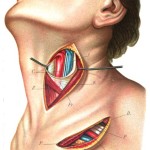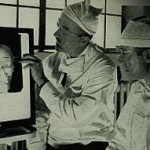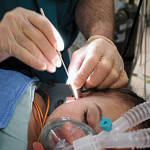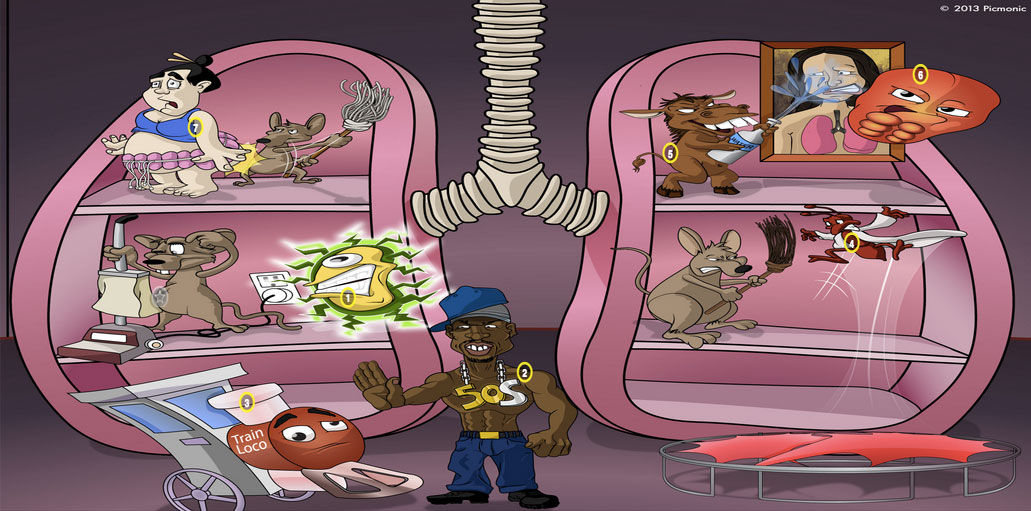
An Otolaryngology (ENT) Resident’s Perspective: From an interview with an ENT resident at from the Midwest.
Part of an interview series entitled, "Specialty Spotlights", which asks medical students' most burning questions to physicians of every specialty. See what doctors from every specialty had to say about why they chose their specialty and how to match in their residency.
-
What attracted you to ENT?
I was attracted to surgery initially. After shadowing in ENT I realize that I really enjoyed the anatomy, I enjoyed the personalities that I encountered in the specialty and I thought that the idea of treating deafness with cochlear implants and the idea of helping kids with cleft lip really exciting.
-
Describe a otolaryngologist’s typical work day?
Work is usually in the office or in the operating room. Some ENTs split their day between both, but most have "clinic days" and "OR days". A resident will round in the morning (early like surgery) and either go to the assigned OR or go to the assigned clinic. Rarely do residents have days to just do floor work after internship. After the day's work is done residents will finish any consults from the day, round on the patients in the evening and sign out to the covering resident.
Attendings will typically come in to start their OR or clinic in the morning, check on their patients during the day, and head home when the work is done.
-
What type of lifestyle can a otolaryngologist expect?
ENT lifestyle is good. Most ENTs have predictable hours and flexibility to arrange their schedule to avoid working late into the night. In private practice, ENTs finish by 5 o'clock and their family can count on them to be home. In academic practice, there can be more evening meetings or emergent consults; and family flexibility is important. Many ENTs are in academic medicine or practice in private groups and divide call across the group.
-
What is the potential salary of a otolaryngologist?
$200-300k for someone starting academic job, 400-600k+ for private (Midwest estimates)
-
What is the job market like for otolaryngology?
There seems to be a shortage of ENTs currently and private groups are recruiting heavily across the country. Academic jobs are available, but may require flexibility on location to get exactly what you are looking for. Fellowships are generally available, although trends seem to ebb and flow & are unpredictable. (i.e. recently facial plastics fellowships were very popular: twice as many applicants as positions, but not the case this year (2015))
-
What can you tell us about otolaryngology subspecialties?
Options for otolaryngologists include General ENT, Head and Neck Oncology, Facial Plastics and Reconstructive surgery, Advanced Pediatric Otolaryngology, Laryngology, Rhinology/Allergy, Otology/Neurotology, Skull Base, Surgery, Sleep Medicine. All differences in salary are mainly determined by private vs. academic setting.
+General ENT- no extra training, most are in private practice with great salary and wide open job market
+Head and Neck oncology- 1-2 year fellowship required, almost all are associated with academic department, most likely type of ENT to have long hours- because surgeries are complex and urgent due to cancer treatment. Airway and bleeding emergencies happen in the patient population, so call can include overnight emergencies requiring surgery.
+Facial plastics and reconstructive surgery: 1-year fellowship, there is variability within this subspecialty from purely cosmetic facial plastic practice to free flap reconstruction after major cancer surgery. The lifestyle of the cosmetic surgeon in private practice can be as glamorous as it sounds. The free flap surgeon lifestyle resembles the head and neck-oncologist.
+Advanced pediatric otolaryngology- 1-2 year fellowship, generally associated with tertiary referral hospital and/or academic center. Lifestyle is a bit busier because they are more likely to have ICU patients than General ENT counterparts. Kids are frequently getting things stuck in their trachea at night so call often involves surgery.
+Laryngology- 1 year fellowship: voice surgery, again typically associated with academic center/tertiary hospital. Some of these ENTs treat professional vocalists and their practice may resemble the cosmetic (posh) clinic. Most laryngologists have consistent hours but airway emergencies can be quite stressful.
+Rhinology/Allergy- 1 year fellowship. Generally specialize in sinus surgery and there is a trend to managing allergy. May be in private or academic setting. Lifestyle is good because emergencies are rare- consults can generally wait until office hours. Somehow billing has been very favorable for rhinology and they are in demand because their practice is lucrative.
+Otology/Neurotology- 2 year fellowship. Focus on treating ear disease and ear surgery including operations on the internal auditory canal (between the brainstem and the inner ear.) They are associated with tertiary referral centers/academic centers and have a good lifestyle- consults can generally wait for business hours.
-
What are the potential downsides of otolaryngology that students should be aware of?
The residency is a surgical residency and that comes with the long hours, pimping, and no service cap. ENT does not have strong history of research and there are many aspects of treatment which are based on expert opinion as the best evidence. If you want evidence like cardiology has- it just isn't there yet. You will encounter snot, ear wax, tracheostomy secretions, pus from neck infections. If this is unacceptable- stay away.
-
What else would you tell medical students who are considering otolaryngology?
Many ENT's enjoy all of the gizmos. Our academic meetings feature many companies coming up with gadgets, scopes and tools for work in the ear/nose/throat. Robotic surgeries are becoming common in ENT practice. Minimally invasive surgery is progressing rapidly. Some of the first applications of 3D printing in medicine have occurred in ENT. If you love innovation, look into this specialty. We have been curing deafness with cochlear implants for decades. There are many more examples.
There is a big variety within the field and you can perform simple procedures like ear tubes or tonsillectomies- all the way to reconstructing a baby's trachea or removing the voicebox for cancer treatment. We frequently work alongside other specialities; neurosurgery has overlaps, endocrine surgery with the thyroid and parathyroid glands, oral surgery, ophthalmology, plastic surgery, pediatric surgery, cardiothoracic surgery etc.
Another strength of the specialty, in my opinion, is that there is no direct medical counterpart (for example neurosurgery and neurology). Which means that we treat head and neck diseases and we decide when to treat medically and when to treat surgically.
Editor's Note: For more help choosing a specialty in medicine, I highly recommend one or both of these two great books. I found both very useful.









 My name is Andrew and I am a first year resident training to be an ophthalmologist. I created ShortWhiteCoats to provide medical students, residents, and the public with all the information I spent so many hours looking for during medical school.
My name is Andrew and I am a first year resident training to be an ophthalmologist. I created ShortWhiteCoats to provide medical students, residents, and the public with all the information I spent so many hours looking for during medical school.







